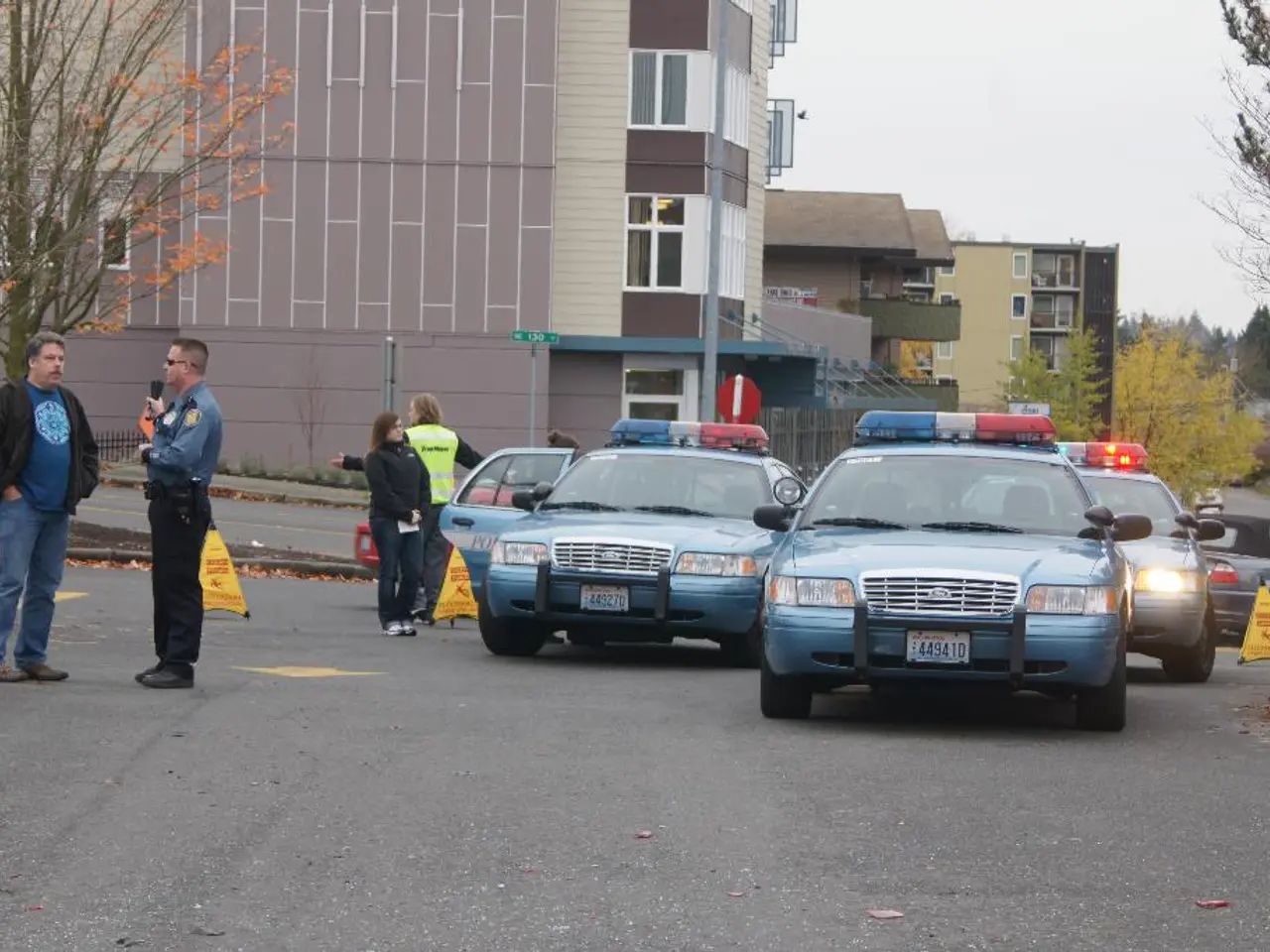Enhanced Public Safeguards in 2025 Federal Spending Bill: A Significant Increase in Population Security
The Federal Office for Civil Protection and Disaster Assistance (BBK) in Germany, under the leadership of President Ralph Tiesler, is spearheading a significant transformation in its civil protection strategy. This shift aims to strengthen societal resilience through modern approaches, moving away from traditional public shelter construction.
Based in Bonn, Bad Neuenahr-Ahrweiler, and Berlin, with a workforce of around 700 employees, the BBK works closely with various authorities at both federal and state levels. Established in 2004, the BBK is a federal higher authority in civil protection, with President Tiesler taking the helm in 2022.
The BBK's central tasks include organizing protection for the population in case of tension or defense. However, its role does not include responsibilities related to the police, military, or intelligence services. Instead, the BBK advises and supports other federal and state authorities in fulfilling their tasks.
In line with the changing security landscape, the BBK's strategy emphasizes preparedness, cooperation, and enhancing warning systems. The focus is on equipping and supporting deployment forces with new vehicles and measuring technology, as well as investing in infrastructure to respond to emergent challenges such as climate change-related disasters and geopolitical security risks.
One of the key aspects of the BBK's strategy is moving away from relying on public shelters, which could never serve more than a small fraction of the population and are seen as outdated for current threat scenarios. Instead, the BBK encourages citizens to maintain basic emergency supplies, such as food, water, flashlights, and radio batteries, to boost societal resilience in case of crises.
The BBK also places a strong emphasis on cooperation across federal and state levels, fostering collaboration among traditional aid organizations and new partners to innovate solutions for alerting and protecting the population. Initiatives like the annual Civil Protection Day and Joint Civil Protection Competence Centre are key to this collaboration.
Adaptation to evolving risks from climate change and geopolitical instability is another critical aspect of the BBK's strategy. This shift indicates a paradigm shift from Cold War-era defense concepts to comprehensive, integrated civil protection strategies focusing on societal resilience.
In terms of technology, the BBK is investing substantially in improving warning systems. This includes investments in the MoWaS system, NINA warning app, cell broadcast, and siren network. The BBK is also developing a modern shelter concept for the population, with a focus on redundancy and creating mobile water transport capacities for projects around water security.
The BBK is also responsible for raising awareness among citizens for preparedness and self-protection. In this regard, campaigns for self-protection will be implemented to ensure emergency preparedness and crisis behavior recommendations reach the population.
For more information, visit the BBK's website at [not provided]. The BBK's role includes developing and strengthening civil defense and crisis management capabilities, with the training and further education in crisis management being expanded with the help of the Federal Academy for Civil Protection and Civil Defense. Additionally, a pilot funding for the equipment of public places of refuge is planned for the financial year 2026.
In summary, the BBK under President Ralph Tiesler prioritizes modernizing civil protection beyond shelter provision, enhancing public preparedness and resilience, strengthening collaboration among organizations and governments, investing in technology and volunteer support to handle complex risks today and tomorrow.
The BBK, beyond its focus on civil protection and crisis management, is also involved in education and self-development, as it expands training and further education in crisis management with the help of the Federal Academy for Civil Protection and Civil Defense. Furthermore, information about sports, politics, general news, or any other topics not directly related to its primary functions would not typically be part of the BBK's domain or responsibility.




